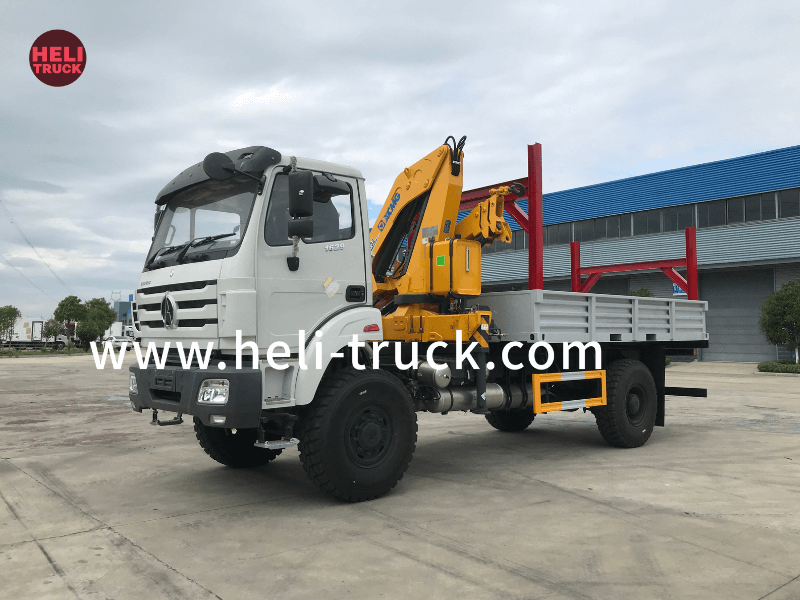Efficient Management of Garbage Truck Waste Transfer Strategies and Innovations

Introduction
Garbage truck waste transfer plays a crucial role in managing municipal solid waste and keeping our cities clean and healthy. The efficient collection, transportation, and disposal of garbage are essential for maintaining public health and environmental sustainability. In this article, we will explore the various aspects of garbage truck waste transfer, including the challenges faced, strategies for improvement, and innovative technologies that are transforming the waste management industry.
Challenges in Garbage Truck Waste Transfer
Garbage truck waste transfer is not without its challenges. One of the primary issues faced by waste management authorities is the sheer volume of waste generated by urban populations. As cities grow and populations increase, the amount of waste produced also rises, putting pressure on existing waste management infrastructure.
Another challenge is the inefficiency and lack of coordination in waste collection and transportation systems. Garbage trucks often follow fixed routes and schedules, leading to inefficiencies in collection and transfer operations. This can result in missed pickups, overflowing bins, and increased operational costs.
Furthermore, the environmental impact of garbage truck waste transfer cannot be ignored. Diesel-powered trucks emit greenhouse gases and other pollutants, contributing to air pollution and climate change. Finding sustainable and eco-friendly solutions for waste transfer is essential to mitigate these environmental impacts.
Strategies for Efficient Waste Transfer
To address the challenges in garbage truck waste transfer, waste management authorities and industry players are adopting various strategies to improve efficiency and sustainability. One of the key strategies is route optimization, which involves using advanced technologies to optimize garbage truck routes based on real-time data on waste generation, traffic conditions, and other relevant factors. By optimizing routes, waste collection can be made more efficient, reducing fuel consumption and operational costs.

Another strategy is the adoption of alternative fuel vehicles for garbage truck waste transfer. Electric, hybrid, and compressed natural gas (CNG) trucks are being increasingly used to reduce emissions and environmental impact. These vehicles offer lower operating costs and reduced maintenance requirements compared to traditional diesel trucks, making them a more sustainable option for waste transfer operations.
Furthermore, the implementation of smart waste management systems is helping to improve the efficiency of garbage truck waste transfer. These systems use sensors, IoT technology, and data analytics to monitor waste levels in bins, optimize collection routes, and schedule pickups more effectively. By utilizing real-time data and analytics, waste management authorities can make informed decisions to improve the overall efficiency of waste transfer operations.
Innovations in Waste Transfer Technologies
In recent years, there have been significant advancements in waste transfer technologies that are revolutionizing the garbage truck waste transfer industry. One of the most notable innovations is the use of autonomous vehicles for waste collection and transfer. Autonomous garbage trucks equipped with sensors and AI technology can navigate streets, collect waste, and transfer it to disposal sites without human intervention. These vehicles offer increased operational efficiency, reduced labor costs, and improved safety in waste transfer operations.
Another innovative technology that is transforming waste transfer is the use of drones for waste collection. Drones equipped with cameras and sensors can fly over urban areas, identify overflowing bins, and alert waste management authorities for timely collection. This technology not only improves the efficiency of waste transfer but also reduces the environmental impact of traditional garbage truck operations.
Furthermore, the development of waste-to-energy facilities is enabling the conversion of organic waste into renewable energy sources. Garbage trucks can transfer organic waste to these facilities, where it is processed through anaerobic digestion or incineration to generate biogas or electricity. Refuse Compactor Truck closed-loop system helps to reduce landfill waste, lower greenhouse gas emissions, and produce clean energy from organic waste materials.
Conclusion
Garbage truck waste transfer is a critical component of municipal solid waste management, and efficient waste transfer operations are essential for maintaining clean and sustainable cities. By addressing the challenges faced in waste transfer operations, adopting innovative technologies, and implementing sustainable strategies, waste management authorities can improve the efficiency and environmental sustainability of garbage truck waste transfer. With continued advancements in waste transfer technologies, we can create a more sustainable and efficient waste management system for the benefit of present and future generations.
